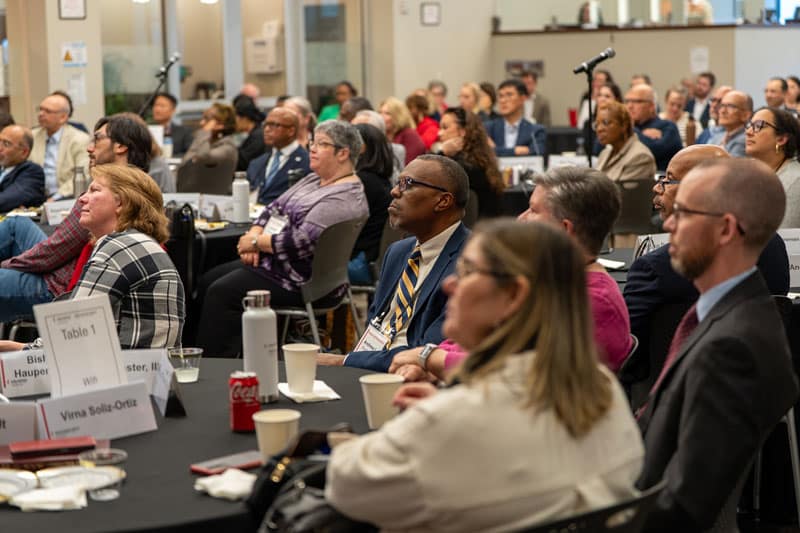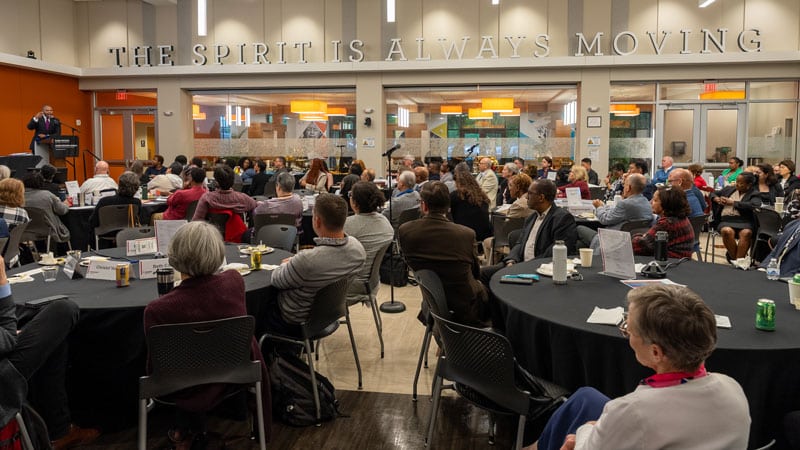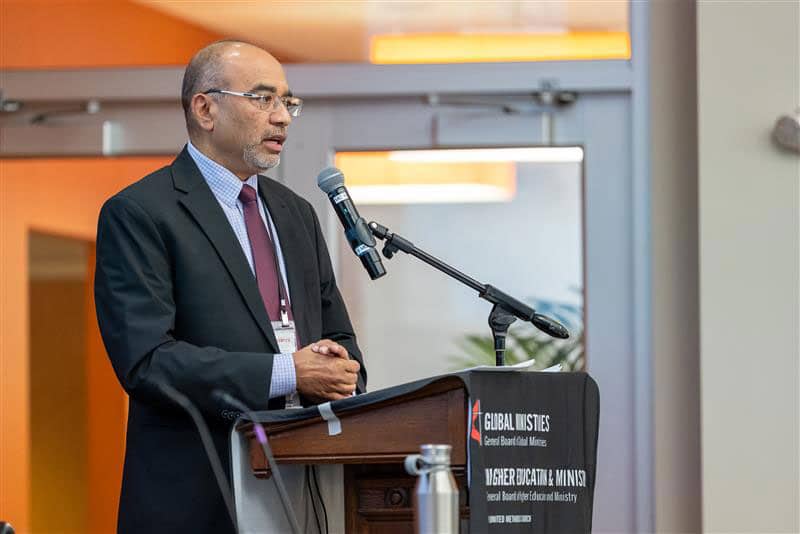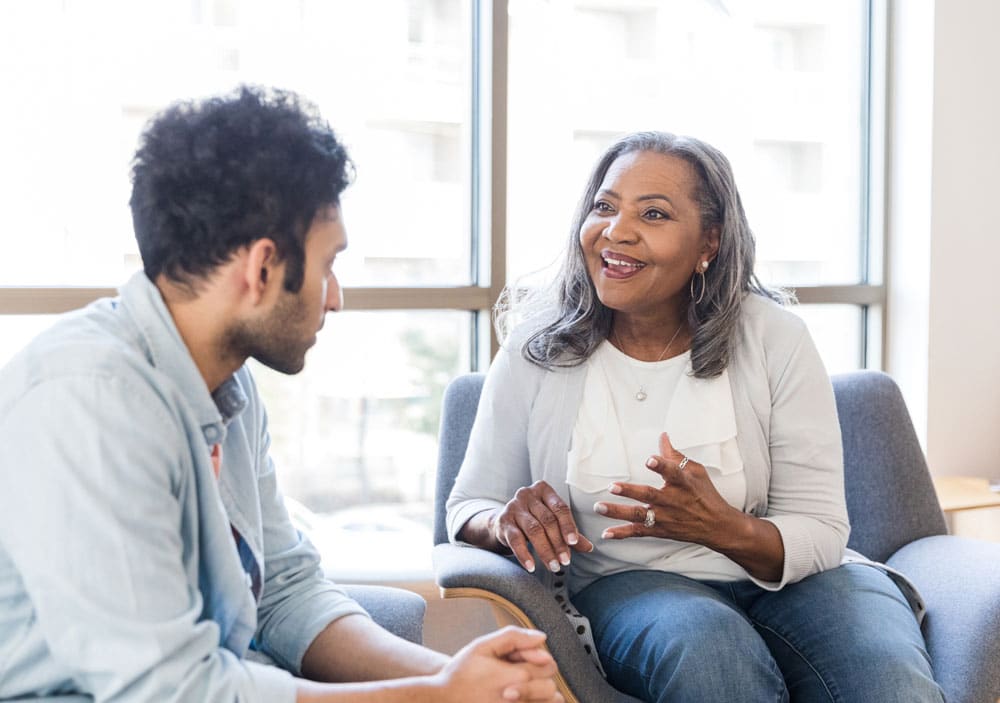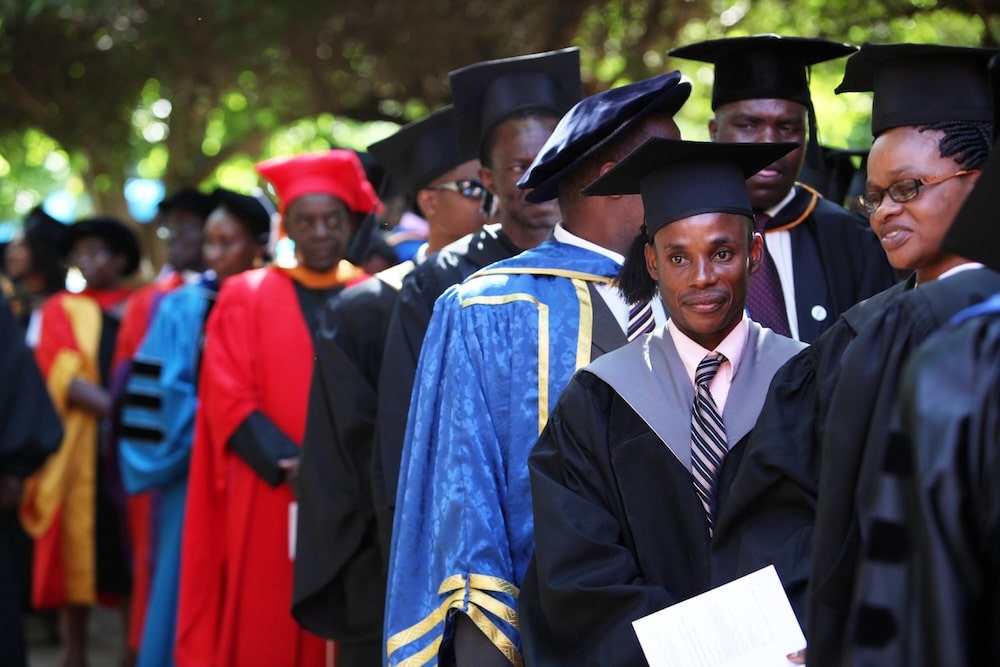Women of Color Scholars’ Series: Moore Uses Research and Writing as Social Justice Ministry
By Jessica Love
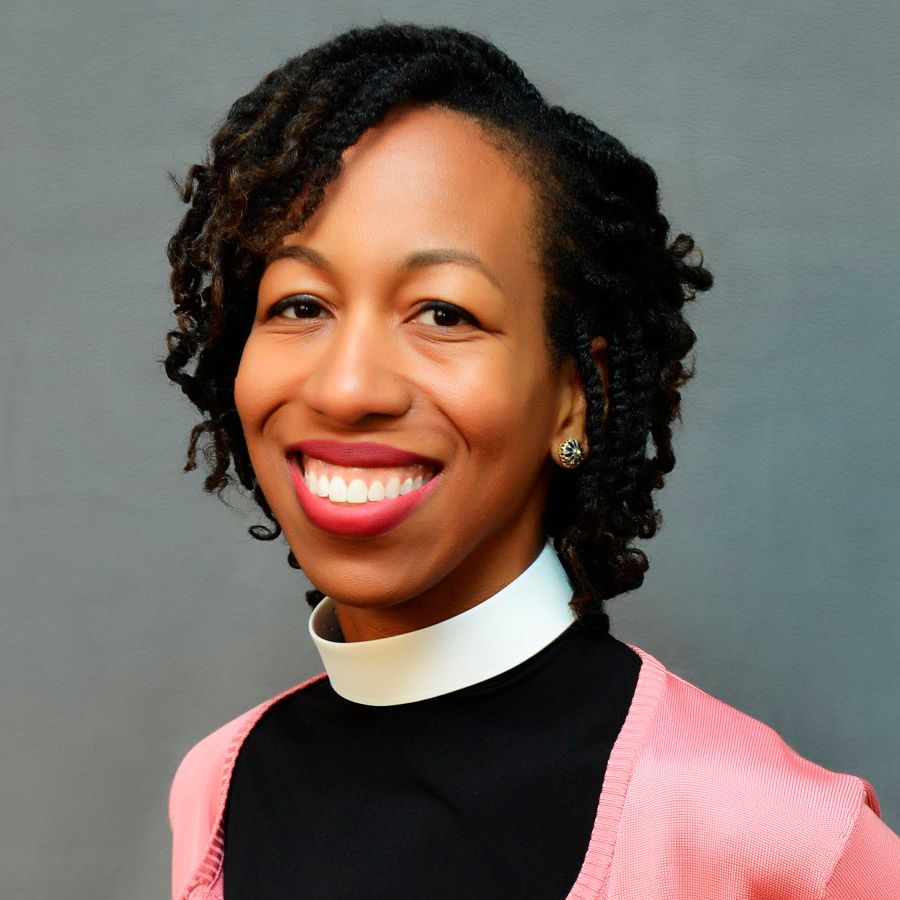
Education and the Church have always been a central part of Rev. Jeania Ree Moore’s life.
“I come from a family of educators,” Moore explained. “I was raised United Methodist and… I attended religious schools K-12 [kindergarten through 12th grade] … So, religion was very much a part of my educational and intellectual formation.”
Now, as a 2020 Women of Color Scholar, the California native engages social justice with research and writing as a form of ministry.
The Angella P. Current-Felder Women of Color (WOC) Scholars program is administered by the General Board of Higher Education and Ministry (GBHEM), and is designed to provide financial, intellectual and personal support to United Methodist women of color pursuing doctorates in religious studies at seminaries and universities across the U.S.
“I felt a call to education first,” Moore recounted. “It was in my senior year of college at Yale, working on my senior project on American civil religion in the National Mall, that I had this moment, this feeling—a light inside of me, realizing that this is what I wanted to do. Research, writing and engaging with people about both historical and contemporary issues, specifically around religion.”
Because of her intellectual formation, Moore said she always knew she wanted to pursue a doctoral degree, explore religious studies and take part in social justice work.
But it was not until she attended Emory University’s Candler School of Theology in Atlanta, Georgia that Moore realized exactly what God was calling her to do.
Social Activism as a Call to Ministry
While pursuing her Master of Divinity at Candler, Moore said that she explored social justice work more deeply. During her first year in the program, she served as an intern prison chaplain at Arrendale State Prison, Georgia’s largest maximum-security prison for women.
“In my third year, a woman was put on death row at the prison, and I felt called to get involved with starting a campaign to try to stop her execution,” Moore said. “And that’s when I can say the call to ministry kind of came to the fore.”
That experience was life-changing for Moore.
“I had never known anyone who was about to be executed,” Moore added. “So, that was new, and it made it more personal even though I did not have a personal relationship with her. Just to know someone was more than just a name you would read in the newspaper, it’s a person… The scales fell away from my eyes.”
Moore believed God was opening her eyes to the issues of injustice around her, and she felt called to address them.
“Through that experience, the various strands of academic research, as well as the call that I felt in college merged with my life-long interest and was put in a ministerial frame,” said Moore.
After graduating from Candler in 2015, Moore received the Gates Scholarship and went on to earn her Master of Philosophy in 2016 from the University of Cambridge in England.
Next, Moore served four years as the Director for Civil and Human Rights at the General Board of Church and Society of The United Methodist Church in Washington, D.C.
Imposter Syndrome in The Ivory Tower
Today, Moore is a first-year doctoral student at Yale University, pursuing a dual doctoral degree in religious and African American studies.
From Yale to Cambridge, Moore has reached the top of the Ivory Tower. Yet, as a woman of color, she fought to overcome the burden of imposter syndrome.
“Whether you’re coming from a lower class position or because of your gender, your race, your ethnicity or whatever you have that is minoritized within the academy…I think you can’t underestimate how much of an internalized challenge that is,” said Moore.
Because of the imposter syndrome, Moore, who always believed she would obtain a Ph.D., said simply applying to Yale for doctoral study was one of the greatest challenges she had to overcome.
“I don’t know if I ever felt prouder of myself than after I submitted my Ph.D. application,” Moore explained. “I’m very grateful to get acceptances, but in the moment I really felt like I overcame something, just because it was a goal I had had for so long, and I had to believe in myself.”
WOC Changes Lives and Structures
That is why Moore feels it is important for the Church to continue to invest and support women of color in the academy.
“I was impacted by a mentor who herself was a scholar…The individual life changes that follow from supporting women of color to become professors and church leaders—who will then impact many others and will change lives—really changes communities,” Moore said.
Moore said the Women of Color program is also important because it helps shape the future of the theological academy.
“What counts as theological knowledge and what has been accepted as such is heavily gendered and racialized,” Moore said. “Shifting that will deepen and move theological truth, education, all the structures and systems currently in the institutional church, and more broadly in society.”
Ministry of Scholarship
Moore’s research explores race and the African American experience in religious studies. Specifically, Moore wants to “explore the racialized proximity to nonhuman animals and the intense challenge and potential, especially theological and political, that proximity signals.”
In June 2020, Moore became an ordained deacon in the California-Pacific Annual Conference of the United Methodist Church. She is also a columnist for Sojourners Magazine. For Moore, writing and research is how she sees herself ministering to others and serving God.
“I want to continue to pursue a life of engaging with others, informing others and being informed by others through the academy and other educational, congregational and community settings,” Moore said.
You can support scholars like Moore by supporting the WOC Scholars program. To give directly to the program, visit: www.gbhem.org/donate4students.
About GBHEM: The General Board of Higher Education and Ministry embraces the ministry of learning and leadership formation in The United Methodist Church and Wesleyan tradition; serving Christians around the world who are shaped by a process of intellectual engagement, spiritual and character formation, and leadership development. We cultivate a dynamic culture of call and vocational discernment that encourages lay and clergy leaders to discover, claim and flourish in God’s ministry and mission for the Church, the academy and the world. Follow us on Twitter and Facebook: @GBHEM.
Related Posts
The General Board of Higher Education and Ministry (GBHEM) approved a one-time Methodist Educational Fund (MEF) subsidy of $400,000 to each of the 13 United Methodist theological schools at its spring 2025 board of directors meeting.
Presentations from partners energize Global Ministries and Higher Education and Ministry board members, inspiring questions on how the church might be uniquely positioned to meet this moment of increased suffering around the world.
Report of General Secretary Roland Fernandes to the Board of Directors of Global Ministries and Higher Education and Ministry
